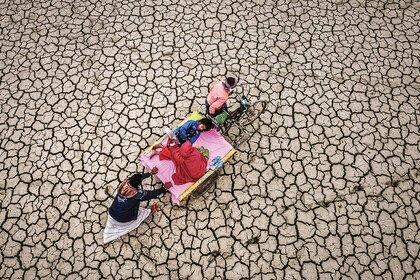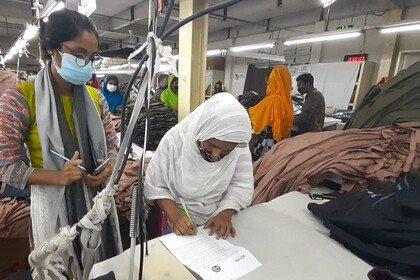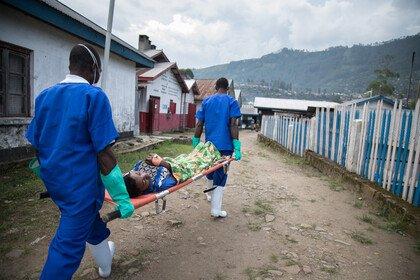
The health effects of climate change, explained
Climate change is a global health problem already impacting millions of people around the world. Here’s what you need to know.
Data is a powerful tool for understanding the health effects of climate change. That’s why we’ve mapped 120 years of global climate and health data to illustrate how climate hazards have changed over time. What's crucial now is improving the data used by health workers and policymakers to protect communities most at risk.
We’ve collected the latest data from two of the world’s most commonly used climate and disaster data sources and presented them in this map.
You can explore the data behind years of devastating drought in Brazil or witness the shocking rise in flooding across India or take a deep dive into recent climate-sensitive disease research from across the world.
But you can also see the gaps in the data.
Datasets like this are never complete. Data may not have been collected, or shared by those who collect it. The quality of data may also vary. These limitations have real-world impacts on the under-resourced field of climate and health research.

Climate change is a global health problem already impacting millions of people around the world. Here’s what you need to know.
For example, how can we develop early-warning systems for heatwaves in South Asia unless temperature records are reliable, available and accessible to those who need them?
Or how can future outbreaks of cholera be prevented if we don’t invest more in research to investigate the impact that climate change is having on its transmission?
How can health researchers use climate data effectively if we don’t bring health and climate communities together to solve common problems?
Our climate and health tracker aims to shine a light on these challenges.
For example, by mapping the average number of data collecting stations per gridded area (the CRU data uses an area of 0.5° by 0.5°) in each country, we gain a snapshot of how climate data sharing and data quality varies around the world – from eight or more stations per area in China, to an average of just two in Papua New Guinea.
Climate change affects us all. For some people and places, the effects are already far worse.
To protect the communities most at risk, we need to know where and how the climate is changing and where these changes have the greatest impact.
But without more resources, investment, and collaboration across the field of climate and health research, the gaps in our scientific understanding will continue to limit our ability to act.
That’s why we’re funding a transformation in the scale of research into the impacts of climate change on human health. To drive this transformation, we need to make sure that high quality data is not only available, but accessible and used particularly in areas and communities most at risk of climate impacts.
Over the next 10 years, we will be investing in the development of evidence to significantly increase our understanding of the current and future effects of climate change on health; how to protect the health of populations as the climate changes; and the potential benefits to health of actions that would reduce climate change.
But this essential evidence alone will not be enough.
We will also work to ensure that this data and research is used by key decision makers at a community, national and global level to make science-informed choices that deliver interventions and policies that respond to the urgent climate and health crisis.
We’re funding vital research into the impact climate change has on human health around the world, at national, regional and global levels. Explore our current funding call:
Advancing climate mitigation solutions with health co-benefits in low- and middle-income countries



Stay up to date with some of the biggest stories in global health, and how we're advocating to improve health for everyone.